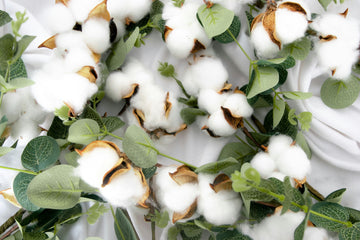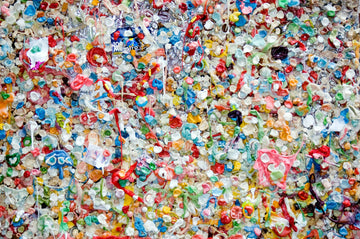In the quest for sustainable alternatives to traditional materials, bamboo stands out as a remarkable choice. Fast-growing, versatile, and highly renewable, bamboo offers a plethora of benefits that align perfectly with eco-friendly principles. From construction to everyday products, bamboo is making a significant impact in the world of sustainability.
In this article, we’ll explore the unique characteristics of bamboo, its various applications, and why incorporating bamboo into products is a smart choice for a greener future.
What is Bamboo?
Bamboo is a type of grass that grows rapidly and can reach maturity in just a few years, unlike traditional hardwoods that take decades to grow. With over 1,500 species found around the world, bamboo is highly adaptable and thrives in various climates, from tropical to temperate regions.
One of the most impressive aspects of bamboo is its growth rate. Some species can grow up to 35 inches in a single day, making it one of the fastest-growing plants on the planet. This rapid growth not only makes bamboo a highly renewable resource but also helps it sequester carbon dioxide efficiently.
Why Bamboo is a Sustainable Choice
Bamboo offers several environmental benefits that make it an attractive alternative to conventional materials:
- Renewable Resource: Bamboo’s rapid growth cycle ensures a continuous supply without depleting natural resources. It can be harvested every 3-5 years without damaging the plant, unlike trees that take decades to mature.
- Carbon Sequestration: Bamboo absorbs carbon dioxide at a higher rate than many trees, helping to mitigate climate change. Its ability to store carbon makes it a valuable tool in reducing greenhouse gases.
- Soil Health: Bamboo helps prevent soil erosion due to its extensive root system, which stabilizes the soil and reduces the risk of landslides and soil degradation.
- Low Water Usage: Compared to other plants, bamboo requires less water to grow, making it a more sustainable option in areas with water scarcity.
Applications of Bamboo
Bamboo’s versatility allows it to be used in a wide range of products, from building materials to everyday items. Here are some popular applications:
1. Construction and Building Materials
Bamboo has been used in construction for centuries, particularly in Asian cultures. Its strength and flexibility make it an excellent material for building structures, including homes, bridges, and scaffolding. Modern construction has embraced bamboo for its durability and eco-friendly qualities, often using it in flooring, wall panels, and even furniture.
2. Kitchen and Tableware
Bamboo is a popular choice for kitchenware and tableware due to its natural antibacterial properties and durability. Items such as cutting boards, utensils, plates, and bowls made from bamboo are not only stylish but also practical. They are lightweight, resistant to staining, and easy to clean, making them ideal for everyday use.
3. Textiles and Fabrics
Bamboo fibers are used to produce a range of textiles and fabrics, including clothing, towels, and bedding. Bamboo fabric is known for its softness, breathability, and moisture-wicking properties, making it a comfortable and eco-friendly alternative to conventional textiles.
4. Eco-Friendly Packaging
Bamboo is increasingly being used in packaging solutions, offering a biodegradable alternative to plastic. Bamboo packaging is both sturdy and sustainable, making it suitable for everything from food packaging to gift wrapping. Its natural properties also give it a unique aesthetic that appeals to eco-conscious consumers.
5. Personal Care Products
In personal care, bamboo is used in products like toothbrushes, combs, and grooming tools. Bamboo toothbrushes, for example, offer a sustainable alternative to plastic brushes, reducing waste and promoting better environmental practices.
Why Bamboo Matters for Corporate Gifts and Promotional Products
Incorporating bamboo into corporate gifts and promotional products is an excellent way for businesses to showcase their commitment to sustainability. Bamboo products are not only eco-friendly but also offer a unique and attractive alternative to conventional promotional items.
1. Branding with a Green Message
Offering bamboo-based corporate gifts, such as pens, notebooks, or drinkware, allows companies to align their brand with eco-friendly values. These gifts serve as a practical reminder of a company’s commitment to sustainability, enhancing its image and appeal.
2. Sustainable Swag
Bamboo swag items are perfect for events, trade shows, and conferences. They make a lasting impression on recipients by combining functionality with an environmental message. By choosing bamboo products, businesses can demonstrate their dedication to reducing waste and promoting green practices.
Bamboo in Everyday Sustainability
Integrating bamboo into daily life is a simple yet impactful way to support sustainability. Whether through household items, clothing, or personal care products, bamboo offers a practical solution for reducing environmental impact.
1. Switch to Bamboo Products
Replacing conventional products with bamboo alternatives can significantly reduce plastic use and waste. From kitchenware to personal care items, bamboo provides a sustainable option that supports a greener lifestyle.
2. Support Sustainable Practices
Choosing bamboo products helps support sustainable forestry and manufacturing practices. By opting for bamboo, consumers and businesses contribute to reducing deforestation, conserving resources, and promoting environmental responsibility.
3. Encourage Recycling and Reuse
Bamboo is not only biodegradable but also recyclable. Encouraging the recycling and reuse of bamboo products helps close the loop on waste, reinforcing the principles of a circular economy.
Conclusion
Bamboo represents a sustainable and versatile material with a wide range of applications. Its rapid growth, environmental benefits, and adaptability make it an excellent choice for various products, from construction materials to everyday items. By embracing bamboo, businesses and individuals can contribute to a greener future and support sustainable practices.
As we continue to seek solutions for reducing environmental impact, bamboo stands out as a practical and eco-friendly option. Whether for corporate gifts, personal use, or packaging, bamboo offers a valuable alternative that aligns with the goals of sustainability and responsible consumption.





